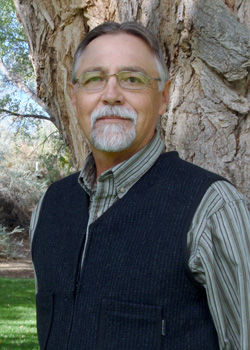As the old saying goes, there are only two things that are a certainty for all of us. We’ve recently been hit with new taxes by Grand County and the State of Utah, in the case of the new tax bill SB 2001, is giving us a whole new creative taxing system to figure out while awaiting that other inevitability, death.
Under SB 2001, we are now going to see new and/or increased taxes on virtually every facet of our lives from increased fuel taxes, increased food taxes, increased taxes on day-to-day service work and taxes on every form of entertainment and recreation people enjoy. You can rest assured that it will increase the cost of living for all of us. And whenever this happens, it’s always the poor and middle class affected the most. If you don’t have an affinity for reading a 238-page statute, you can find a seven-page summary of the bill at the following website: https://tinyurl.com/ygl4a76d.
The only seemingly good thing that came out of this new state bill was a decrease in income taxes. But even that is not quite what it seems. It’s a relatively modest percentage decrease from 4.95% to 4.66%. Modest income tax decreases typically have a far greater positive impact on high-income families. But the still darker side of this decrease is less funding available for public education.
In Utah, all income tax is dedicated to education by the Utah State Constitution. So with the cut, there will be less funding for education. What that will mean for us all is an increase in your local property taxes to make up for the shortfall in school funding from the state.
At the end of the day, the overall impact of this new tax structure in Utah is not positive and will have its greatest impact on the working poor, middle class and rural Utahns.
In a changing world, it’s not unreasonable for governments to occasionally re-evaluate their sources of revenue generation. And when developing legislation, it is not uncommon for legislators to vote for bills that have some good and some bad in them in order to pass that legislation. But in this case, I fail to see where there is any good.
But I see a bigger problem at play in all these latest efforts to raise or reconfigure government tax revenue at every level. Our elected leaders seem to have forgotten the concept of a government living within its means.
We all know what happens in our personal lives when income declines. We decrease expenditures, divest assets or go bankrupt. What in the world has happened to government that this principle doesn’t seem to apply to public budgets? And it’s at all levels. Run low on revenue, then simply increase taxes: no need to reduce expenditures.
In the latest rounds of tax increases at the Grand County and Utah state level, there never seemed to be much discussion of decreasing expenditures or reducing the size of government. It seems the most significant effort expended by state legislators was in finding new and innovative ways to tax us. It appears to me that very little effort was spent on looking for ways to decrease the growth of government spending or programs. Utah itself has over 240 agencies and programs in place. Yet where was the effort to evaluate the necessity of all of these or look for ways to combine services or increase productivity? If such an effort was made, the public didn’t see it.
There is little we can do to back off the Grand County property tax increases, other than remembering it when the County Council elections come around this fall.
But there is a process in place to repeal this new and overzealous raid on taxpayers’ pocketbooks from the state Legislature. SB 2001 can be repealed by a statewide referendum. Such a petition for referendum is actively underway in every county in Utah and presents one of the most bipartisan efforts I’ve witnessed in decades in this state.
If enough signatures are obtained, the tax increase can be put to a vote this November and repealed if that is the will of the people. This would send the Legislature back to the drawing table to find a more equitable way to balance the state’s coffers and include, as part of that process, a legitimate effort to cut back the level of state government we currently experience.
I encourage all to sign this petition and put this ill-conceived tax increase in the hands of the voters of this state.
Lynn Jackson is a 40-year resident of Grand County, former member of the Grand County Council and currently vice-President of the Grand County Republican Party.



